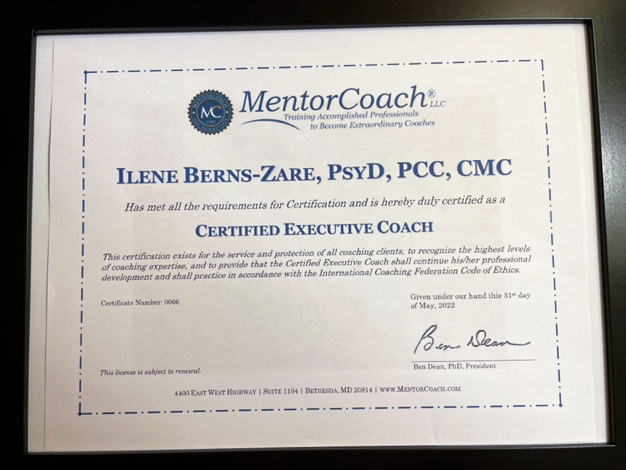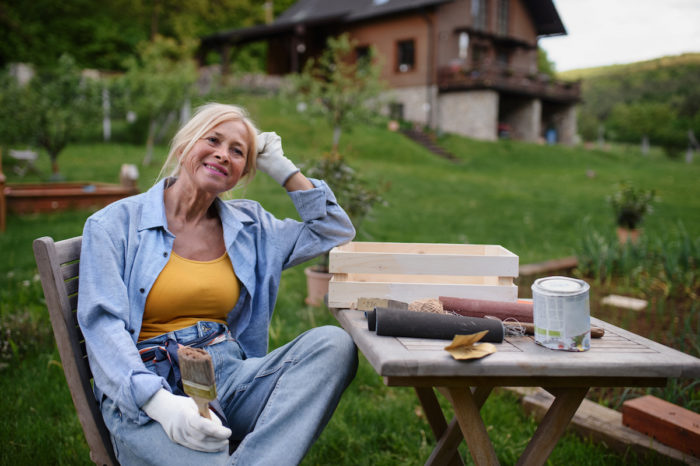Dear friends,
I’m proud to announce that I’ve earned another certification – Certified Executive Coach – from MentorCoach, LLC.
One of my specialties is coaching with leaders to develop their strategic vision, maximize their performance, and navigate their human journey. This certification amplifies my skillset helping executives and emerging leaders discover their true potential as they explore the complexities of their roles and personal/professional development in this ever-changing world.
For more information about executive/leadership coaching or seminars, click here.
To get the monthly Flourish in Life and Work newsletter, click here.

Now, on to this month’s blog:
🙏 What is Hope and Why is it So Powerful?
5 Ways to Strengthen Your Hope Skills
Hope is much more than wishful thinking.
I used to think of hope as simply wishing something would happen. More recently, I’ve learned that hope is much more. Hope is a powerful tool in the life toolbox – an important set of strategies for building wellbeing, resilience, and accomplishment (Eaves et al, 2016; Berns-Zare, 2021).
Hope can empower us to create and sustain a more positive future – at work, at school, and at home. Research indicates that hope can promote confidence, empowerment and resilience. When we believe that our personal actions and abilities can expand, and are not fixed, our performance and ability to respond to life’s challenges can improve (Yeager & Dweck, 2014; Snyder, 2000).
Hope is also linked to greater emotional and physical wellbeing, positive relationships, productivity, goal setting and achievement, and performance in academics and athletics (Rand & Cheavens, 2009; Snyder, 2002).
Evidence suggests that hope is learnable and teachable (Rand & Cheavens, 2009). An organization called Hopeful Minds is bringing hope skills to the larger community to help people build their resilience during these challenging times. Kathryn Goetzke, the founder of the nonprofit International Foundation for Research and Education, iFred, and creator of Hopeful Minds, has been working with a panel of experts examining research about hope. They’ve developed a user-friendly mnemonic called SHINE to help us engage the power of hope.

☀️ These five steps for hope can help children and adults build resilience, handle day-to-day adversities, and develop skills for life. Using the acronym SHINE, here are the Five Keys for Hope…
S – Stress Skills
You can strengthen your resilience by learning and practicing stress skills. Some of these practices include pausing and employing breathing techniques like lengthening the exhale or slow, focused breathing, listening to soothing music, laughing, exercising, or going outdoors and noticing the beauty of nature.
H – Happiness Habits
To bring greater hope into your life, you can cultivate habits that nourish happiness and positive emotions. A few practices that can promote happiness and wellbeing include: pausing to notice and savor good moments, practicing gratitude/thankfulness, being kind to yourself and others, engaging in activities you find meaningful, discovering and using your strengths.
I – Inspired Actions
You can inspire your hope by setting meaningful goals that can offer you encouragement and motivation for your life and your future. Experts recommend developing SMART goals that are Specific, Measurable, Attainable, Relevant and Time-framed. It’s helpful to break larger goals in smaller, step-by-step actions. Also, consider possible tumbling blocks and brainstorm ways to overcome them if they get in the way.
N – Nourishing Network
Having a support network of family, friends, coworkers, and support professionals can go a long way toward helping to bolster your hope and happiness. Knowing who you can turn to in good times and bad can contribute to a hopeful mindset. These connections may also include people beyond your personal network, where you can go during times of crisis. According to HopefulCities.org, your hope network should include people who value you and your strengths, see the positives in you, and want you to be successful.
E – Eliminate Challenges
When you feel challenged or there’s an obstacle in the way, first identify it. Then, you can use your SHINE skills to help yourself overcome the obstacle.
* This article is for informational purposes only. No content is a substitute for consulting with a qualified mental health or healthcare professional.
😊 If you would like to share a seminar on this topic with your organization, business, school, or group, click here to contact Ilene.
Send your comments and suggestions to Ilene!
Click here to send Ilene an email with your thoughts about this blog post.
References:
- Alsop, R., Bertelsen, M.F., & Holland, J. (2006). Empowerment in practice: From analysis to implementation. Washington, DC: World Bank Publications.
- Berns-Zare, I. (2021) What do you hope for? Research shows hope is a skill we can learn and get better at.
- Eaves, E.R., Nichter, M., & Ritenbaugh, C. (2016). Ways of hoping: navigating the paradox of hope and despair in chronic pain. Culture, Medicine, and Psychiatry, 40(1), 35-58.
- Hopeful Cities: An iFred.org Project (2022). Five keys to hope.
- Rand, K.L. & J.S. Cheavens. (2009). Hope Theory. In S.J. Lopez & C.R. Snyder (Eds.) The Oxford Handbook of Positive Psychology, 2, (323-333). New York, NY: Oxford University
- Snyder, C.R. (Ed.). (2000). Handbook of hope: Theory measures, and applications. San Diego, CA: Academic Press.
- Snyder, C.R. (2002). Hope theory: Rainbows in the mind. Psychological Inquiry, 13, 249-275.
- Yeager, D. S., Johnson, R., Spitzer, B. J., Trzesniewski, K.H., Powers, J., & Dweck, C.S. (2014). The far-reaching effects of believing people can change: Implicit theories of personality shape stress, health, and achievement during adolescence. Journal of Personality and Social Psychology, 106(6), 867-884.
Copyright © 2022 Ilene Berns-Zare, LLC, All Rights Reserved
Ilene is a Featured Author on PsychologyToday!
Read her blog series Flourish and Thrive: Navigating transitions with mindfulness and resilience.

Are you ready to embrace the power of hope?
Tap into your strengths, purpose, and potential to flourish in life and work.
If you’d like to discuss how Ilene Berns-Zare Coaching can help you achieve your goals, contact Ilene.
Coaching with Ilene Can Help You Call Yourself to Action
Ilene Berns-Zare, PsyD, PCC, CEC, is an Executive and Personal Coach and Speaker. Ilene helps people live their best personal and professional lives by bringing mind, body, and spirit into flow with strengths, purpose, and potential. She inspires clients to find fresh perspectives and access their full potential as creative, resourceful, whole persons. Find Ilene online, set up a free discovery coaching consultation, and access free resources at https://ibzcoaching.com/.
Please share this blog with anyone who might be interested in reading it!
We would love to hear from you! We are interested in your suggestions for this newsletter, your reactions to this one, or providing more information about coaching.



